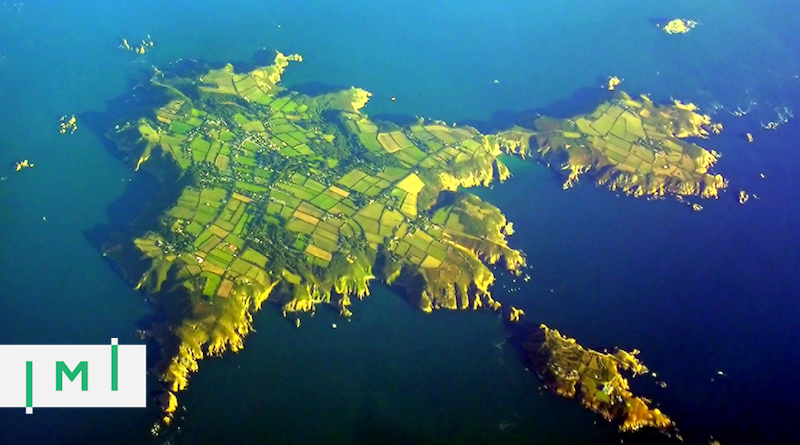The Man Who Grew Sark’s Population 20% by Wooing Digital Business-Owners With Political Freedom
German financial advisor and fund manager Swen Lorenz – the man behind Sark Society, a private initiative aiming to double Sark’s population – calls the island a “secret European micro-state”.
Since last year, Mr. Lorenz has helped more than a hundred individuals, many of them location-independent entrepreneurs from his native Germany, relocate to the island. At last count, in 2015, the island – which is part of the Bailiwick of Guernsey but also autonomous in terms of fiscal policy – had a population of 492, implying that Lorenz has single-handedly expanded the island’s population by more than one-fifth in the span of little more than a year.

Based in Sark since 2004, Lorenz last year told journalists he launched his initiative because he was “greatly concerned” about the jurisdiction’s falling population, which he worried would make life there “simply not viable.” To reverse the depopulation trend, Lorenz wrote a book titled How (and Why) to Move to Sark?
“I am just a resident of Sark who had the know-how and the network to start a one-off campaign to bring fresh blood to the island,” Lorenz tells IMI in an email. “Over 20% of Sark’s real estate stood empty and the island was on the brink of economic collapse. So I took matters into my hands and did something about it, by starting my campaign and making available a 300+ page handbook about moving to Sark, which I initially sold for $1,500.”
An interview with the BBC last August catapulted interest in Lorenz’s relocation service. “It took over my life for a few months and it has reinvigorated Sark,” Lorenz told the Guernsey Press last month.
Lorenz points out to IMI that he is not usually an immigration advisor and that none of his clients had made use of Guernsey’s investor immigration route.
“The entire 2020 cohort of immigrants came here on the back of the EU Pre-Settled Scheme that was valid for the UK’s Common Travel Area (incl. Channel Islands) until 31/12/2020,” he writes. “They simply all had EU passports and just registered before year-end which gives them the five-year temporary residence permit, which they can subsequently convert to permanent residency.”
A night-watchman state in the English channel
A generally laissez-faire jurisdiction, Sark is fiscally independent of the Bailiwick of Guernsey (which, in turn, is fiscally independent of the United Kingdom). And whereas Guernsey imposes personal income tax rates of up to 20%, Sark levies no taxes on personal income, capital gains, or inheritances.
The only notable taxes residents need to contend with are the Personal Capital Tax (PCT) and the Property Tax, but even these amount to negligible absolute sums. The PCT ranges from GBP 450 to GBP 9,000 per year, or 0.39% of the subject’s capital base, whichever is the lower. In 2014, for example, the highest total tax payment recorded was GBP 6,400.
There are regulatory benefits as well, Lorenz tells IMI. “In Guernsey, you need to keep accounts for yourself, whereas in Sark you don’t. Tax is based primarily on the size of your property and there is no need to report on income or assets,” he says, adding that the island offers a “slower pace of life,” and that it has no cars or paved roads.

Plenty of room left
Questioned as to how the tiny community was able to absorb such a sharp rise in population in a short period, Lorenz attributes the feat to an abundance of unoccupied real estate.
“We have gone from lots of property being empty to now basically 100% occupancy.”
But there is plenty more room for growth, he maintains.
“If all the derelict properties were done up and some large properties put to better use, we could easily get another 100-200 people in here. And then more could be built, despite Sark’s strict planning laws.”
Lorenz has the support of the island’s Seigneur, Christopher Beaumont, who last year told the BBC he had been in discussions with Mr. Lorenz about the plan “for a long time.”
Lorenz says the Seigneur thinks 800-1,000 inhabitants would be the optimum. Mr. Lorenz himself says he doubts the current number is more than 600, but also points out that, because of Sark’s minimal government, population statistics are not generally gathered.

Now that the EU Pre-Settled Scheme has lapsed, prospective Sark residents will have to avail themselves of conventional channels of immigration. Guernsey has both an Entrepreneur and an Investor visa program, the latter of which has a minimum investment requirement of GBP 750,000.
“Sark’s authorities had assumed neither [the entrepreneur nor investor visa] applied to Sark. I informed them that the entrepreneur visa does apply to Sark – even though no one has ever applied.”
It is likely, he says, that Guernsey will extend also the investor visa to Sark later this year, as part of a harmonization of immigration rules between the Channel Islands Bailiwicks and the rest of the UK. At that point, he notes, Guernsey is also likely to harmonize the investment requirement with that of the UK’s Tier 1 investor visa, which is to say it would raise it from GBP 750,000 to GBP 2 million.


